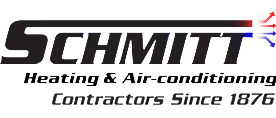Decision On Whether To Repair Or Replace Your Air Conditioner
You may find yourself in a dilemma where you do not know whether to replace or repair your air conditioner. You may feel that you really need a new conditioner and yet you may not have the money to. Repairing on the other hand may be cheaper but there is no guarantee that the machine will last long afterwards. So what do you so? Well, this decision can be made based on several factors.
Energy bills
If there is an upward trend in your recent energy bills paid, then you may need to reconsider your decisions. Rising energy bills shows you that the equipment is not running as efficiently as it used to before. Therefore, it is time you took it up and prevent a further upsurge in the utility bills.
The level of temperatures in summer
If your air conditioner is working at full capacity and yet the temperature in the house still allows profuse sweating, it is time to reconsider repair for replacement. This shows that it has outlived its useful life in your home and thus you may need to replace it. If you are not sure about this, consult your technician for some advice.
Frequency of repairs
Is your air conditioner breaking down every few weeks? Do you have to call your technician every other month for some repair? Are you wondering “should I replace or repair my equipment again?” well reality check seems to incline on the replace. The amount of money you will spend repairing the conditioner is substantial and if you do not replace it, you will continue spending a lot on its repair. So it is better to just replace it.
Age of conditioner
How old the conditioner is determines whether to repair it or to replace it altogether. There is a rule called the $5000 rule. This is derived by multiplying the average cost of the repair by the number of years you have used the equipment. If it is less than $5000, then it is falls in the category of those that require to be repaired but if it is way higher then you need to replace it.
There are times when we let our systems become so outdated that they cannot get spare parts. Such equipment is up for replacement. Other times, your machinery is relatively new and thus you will just need to repair it since it has not exhausted its useful life.



